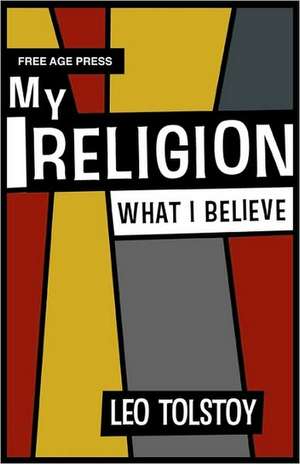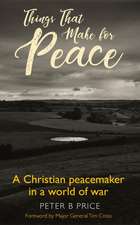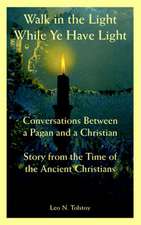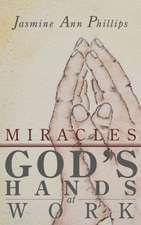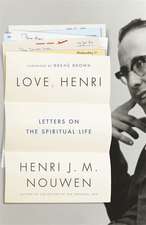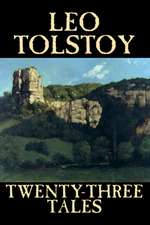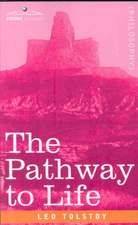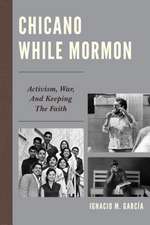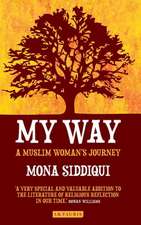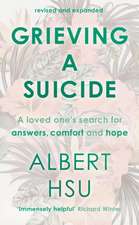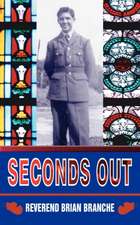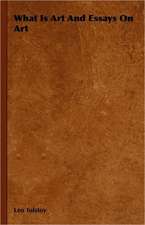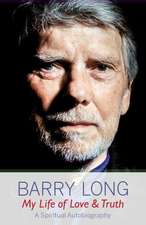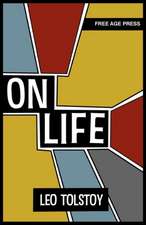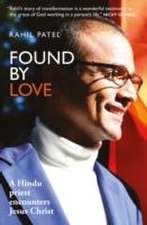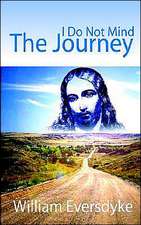My Religion - What I Believe
Autor Leo Nikolayevich Tolstoyen Limba Engleză Paperback – 2010
| Toate formatele și edițiile | Preț | Express |
|---|---|---|
| Paperback (1) | 88.15 lei 3-5 săpt. | |
| White Crow Books – 2010 | 88.15 lei 3-5 săpt. | |
| Hardback (1) | 159.34 lei 3-5 săpt. | |
| White Crow Books – 28 feb 2010 | 159.34 lei 3-5 săpt. |
Preț: 88.15 lei
Nou
Puncte Express: 132
Preț estimativ în valută:
16.87€ • 17.61$ • 13.93£
16.87€ • 17.61$ • 13.93£
Carte disponibilă
Livrare economică 26 martie-09 aprilie
Preluare comenzi: 021 569.72.76
Specificații
ISBN-13: 9781907355233
ISBN-10: 1907355235
Pagini: 188
Dimensiuni: 140 x 216 x 11 mm
Greutate: 0.25 kg
Editura: White Crow Books
ISBN-10: 1907355235
Pagini: 188
Dimensiuni: 140 x 216 x 11 mm
Greutate: 0.25 kg
Editura: White Crow Books
Notă biografică
Count Lev Nikolayevich Tolstoy (/¿tölst¿¿, ¿t¿l-/;[2] Russian: ¿¿¿ ¿¿¿¿¿¿¿¿¿¿ ¿¿¿¿¿¿¿, was born 9 September [O.S. 28 August] 1828 - 20 November [O.S. 7 November] 1910). He is usually referred to in English as Leo Tolstoy, was a Russian writer who is regarded as one of the greatest authors of all time. He received nominations for the Nobel Prize in Literature every year from 1902 to 1906 and for the Nobel Peace Prize in 1901, 1902, and 1909; the fact that he never won is a major controversy.Born to an aristocratic Russian family in 1828, Tolstoy's notable works include the novels War and Peace (1869) and Anna Karenina (1878),[8] often cited as pinnacles of realist fiction. He first achieved literary acclaim in his twenties with his semi-autobiographical trilogy, Childhood, Boyhood, and Youth (1852-1856), and Sevastopol Sketches (1855), based upon his experiences in the Crimean War. His fiction includes dozens of short stories and several novellas such as The Death of Ivan Ilyich (1886), Family Happiness (1859), "After the Ball" (1911), and Hadji Murad (1912). He also wrote plays and numerous philosophical essays.In the 1870s, Tolstoy experienced a profound moral crisis, followed by what he regarded as an equally profound spiritual awakening, as outlined in his non-fiction work A Confession (1882). His literal interpretation of the ethical teachings of Jesus, centering on the Sermon on the Mount, caused him to become a fervent Christian anarchist and pacifist. His ideas on nonviolent resistance, expressed in such works as The Kingdom of God Is Within You (1894), had a profound impact on such pivotal 20th-century figures as Mahatma Gandhi[9] and Martin Luther King Jr. He also became a dedicated advocate of Georgism, the economic philosophy of Henry George, which he incorporated into his writing, particularly Resurrection (1899).
